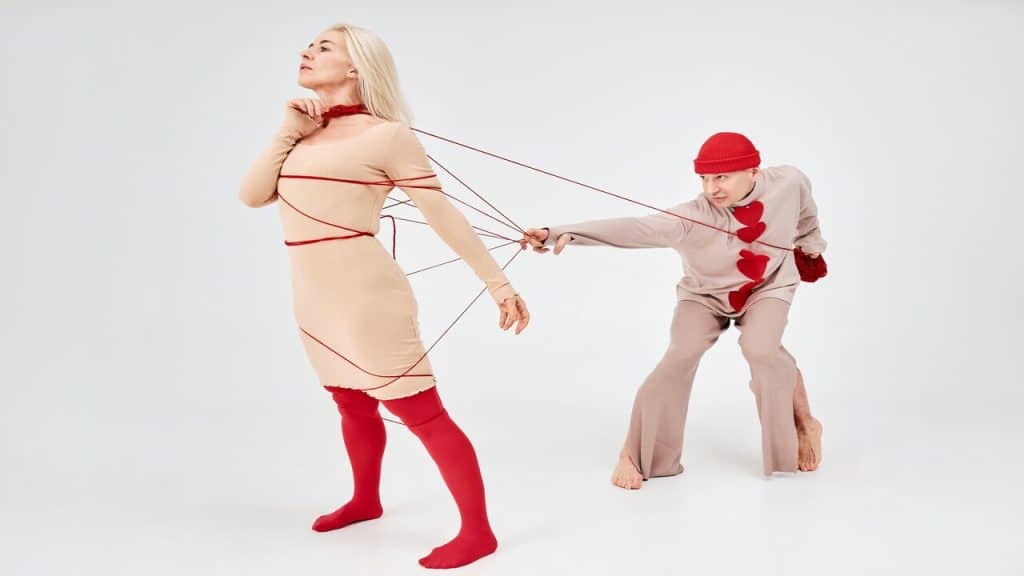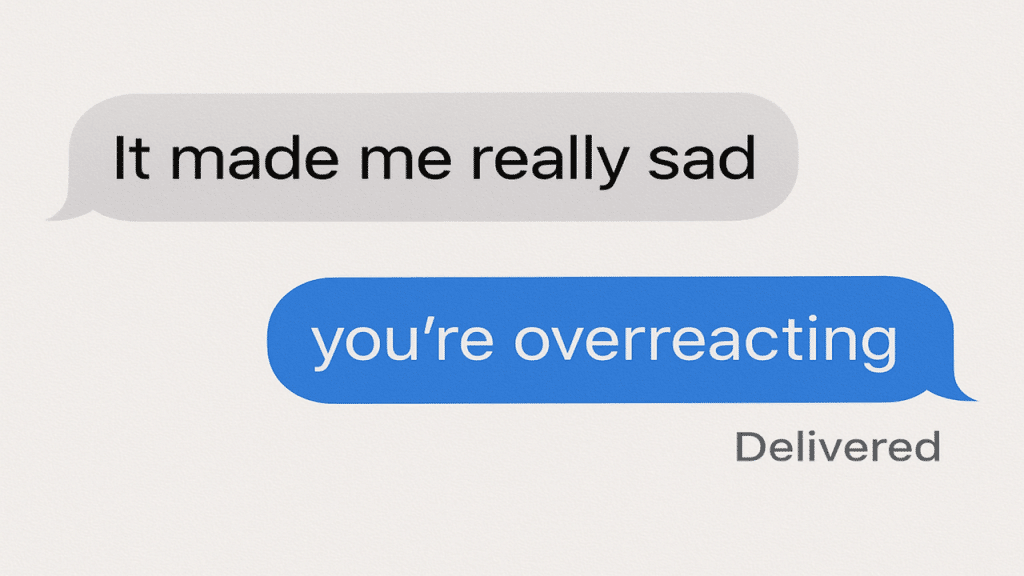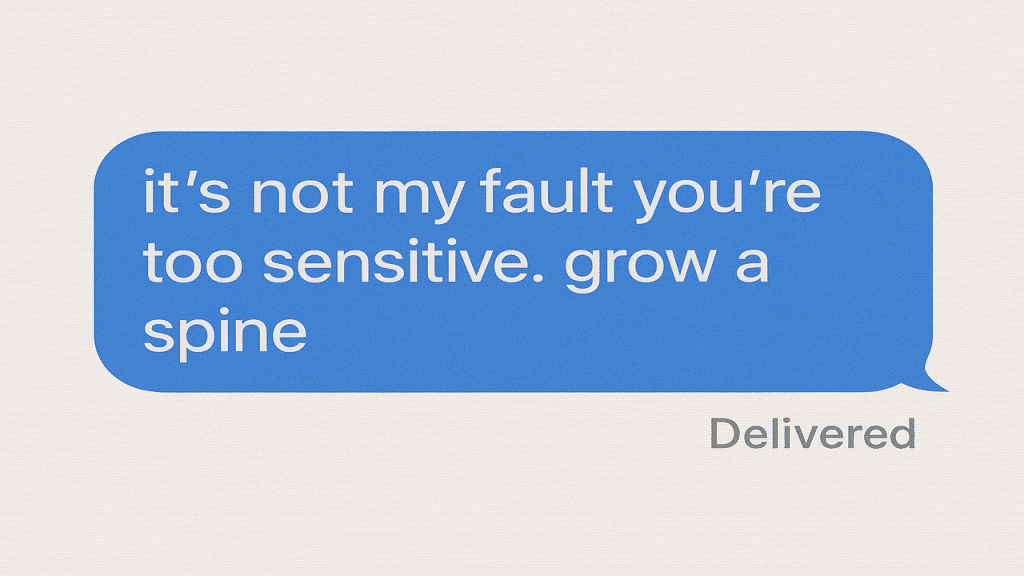
When we’re in the throes of a relationship dripping with chemistry, it’s hard to notice the red flags waving in the distance. In fact, it’s easy to confuse chaos for passion, and controlling behavior for deep concern. That’s why toxic patterns tend to sneak in unnoticed–because they often wear the mask of love, affection, or even sacrifice.
While no relationship will ever be perfect, there are still some telltale signs that should never be brushed aside. These patterns are subtle at first, but left unchecked, they can erode your confidence, your peace, and your sense of self. If any of these behaviors are familiar, don’t explain them away… instead, you need to pay attention.
1. Manipulation

If you’re not quite sure when you’re being manipulated, here are some examples: Guilt-tripping you into decisions, twisting your words, or using your past mistakes against you. It’s not always dramatic; on the contrary, it’s often quiet and calculated. A manipulative partner makes you feel like the crazy one or convinces you that you’re the problem for speaking up. If you’re constantly second-guessing your own instincts, that’s your sign.
2. Lying

This is a giant red flag, full stop. Lying in any form–big or small–chips away at trust until there’s nothing left. White lies become slippery slopes, and soon you’re in a relationship where nothing feels reliable. If someone lies to you often, they’re choosing control over clarity. That’s not love. It’s abusing their power.
3. Controlling Behavior

If your partner has a tendency to monitor your whereabouts, choose your friends, or make you feel guilty for having a life outside of the relationship, it’s not protection–it’s control. True love doesn’t demand obedience or isolation. It encourages growth, freedom, and individuality. The moment your world starts to shrink because of them, it’s time to re-evaluate.
4. Invalidating

If you opened up your heart and allowed yourself to be vulnerable, only to be dismissed with a “you’re overreacting” or “you’re too sensitive,” that’s emotional invalidation. You don’t need someone to agree with you 100% of the time–but you do deserve to be heard. If your feelings are constantly minimized, it chips away at your confidence and self-worth.
5. Lack of Boundaries

Some examples of a clear lack of boundaries include constantly checking your phone without your consent, demanding access to your passwords, or showing up uninvited. Even in love, we’re allowed privacy. Boundaries aren’t barriers; they’re bridges that allow connection to happen safely. If yours are always being breached, you’re not being respected.
6. Defensiveness

If your partner can’t listen to a valid concern without quickly jumping to defending himself or herself, nothing ever gets resolved. Defensiveness kills the possibility of growth. It turns every conversation into a courtroom battle instead of a place for understanding. A partner who always has to be “right” will never give your feelings room to exist.
7. Lack of Accountability

To lack accountability is to refuse growth. If someone can’t say “I messed up” or “That was my fault,” it becomes impossible to move forward. They might deflect, minimize, or make excuses, but rarely do they take real ownership. And without ownership, apologies are hollow and promises are empty.
8. Criticism

Constructive criticism and feedback will always be part and parcel of a healthy relationship, but there’s a difference between that and constant fault-finding. If you feel like you can’t do anything right, or you’re being nitpicked over how you speak, dress, or even laugh–those aren’t quirks, those are control tactics disguised as opinions.
9. Stonewalling

This is one of the Gottman Institute’s Four Horsemen of the relationship apocalypse for a reason: Shutting down, giving the silent treatment, or walking out mid-conversation kills emotional intimacy. It makes the other person feel abandoned in a moment of vulnerability. Silence is not a solution; it’s a punishment.
10. Blame Shifting

Similar to lack of accountability, a pattern of blame shifting is when everything–literally everything–is somehow your fault. They forgot your birthday? It’s because you didn’t remind them. They snapped at you? You provoked them. You’ll find yourself apologizing just to keep the peace. That’s not love. That’s emotional manipulation on loop.
11. Gaslighting

This word has lost its true textbook meaning in the past few years, but it still matters. Gaslighting is not just disagreeing–it’s making you doubt your own reality. If your partner rewrites history, questions your memory, or says things like “that never happened,” it’s an attempt to destabilize your sense of truth. And it works–until you catch it.
12. Passive Aggression

Passive aggression in a relationship can look like sarcasm, silent punishment, backhanded compliments, or subtle digs masked as jokes. It’s communication without accountability. Instead of saying how they feel, they make you figure it out. And the guessing game gets exhausting really quickly.
13. Public Humiliation

If your partner has a tendency to make jokes at your expense or take to social media to air out his grievances about your relationship, that’s a form of public disrespect. Being put down in front of others–even when subtly done–isn’t edgy, funny, or “just their personality.” It’s degrading. Real love protects you in private and in public.
14. Illogical Jealousy

If your partner gets jealous without a warrant–accusing you of flirting with strangers, resenting your friendships, or questioning every interaction you have–it’s not romantic. It’s restrictive. Jealousy rooted in insecurity can quickly become paranoia. You shouldn’t have to live in a world where normal behavior is treated like betrayal.
15. Love Bombing

Love bombing is when someone overwhelms you with gifts, attention, and promises early on–only to withdraw it all when you start to trust them. It feels intoxicating at first, but underneath the flattery is control. It’s not real love; it’s a tactic to get you hooked. Watch what happens when you start setting boundaries–that’s when the mask slips.
16. Walking on Eggshells

If you’re always anxious about what version of your partner you will see for the day, or if you feel like you have to game the system so that they won’t be set off–that’s not just stress. That’s emotional instability. A healthy relationship shouldn’t require performance or self-editing. You should feel safe, not scared.






Ask Me Anything